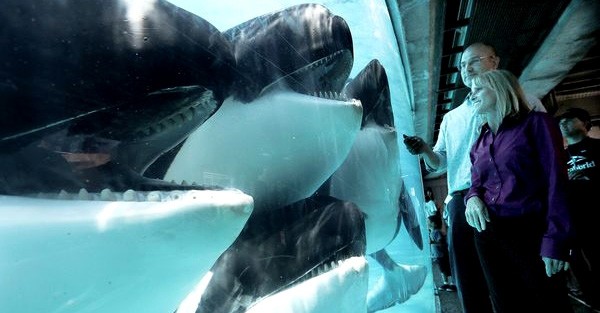It’s been almost two years since the documentary Blackfish was released, and in that time the marine park SeaWorld has furiously worked to reinvigorate public interest in order to revive its plummeting profits and grow the dwindling fan base.
The company’s efforts, however, have fallen short, especially with Orcas as old as ‘Granny’ (determined to be 103-years-old by scientists) shown to be truly thriving in the wild.
The marine park isn’t ready to give up just yet, though, therefore recently self-funded a study to determine ‘once and for all’ if orcas really do live longer in the wild or not. Perhaps unsurprisingly, the study concluded that orcas kept in captivity have the same life expectancy as those living in the wild. Much to the dismay of the marine park, however, its findings have come under public scrutiny.
Published in the July edition of the Journal of Mammalogy, the peer-reviewed journal states that SeaWorld orcas live about 41.6 years, compared to 42.3 for whales in the northern community of the Pacific Northwest. Whales living in a southern community are reported to live about 29 years.
“The results demonstrate unequivocally that killer whales in captivity have similar life expectancies to those in the wild and provide invaluable knowledge concerning normal reproductive patterns of the species,” said Todd Robeck, vice president of theriogenology at SeaWorld Parks and Entertainment.
But because two SeaWorld employees, Robeck himself, and Kevin Willis, the V.P. of biological programs of the Minnesota Zoo, were part of the team who wrote the report, the findings have come under fire by animal rights groups.

Prior to this study, another report was published in the April edition of Marine Mammal Science concluding that the life expectancy of captive whales is only 11.8 years. This number is drastically lower than in the wild and what Robeck and SeaWorld have claimed.
Even in Blackfish, trainers state that mid to late-twenties is a normal age for orcas to live in captivity. So what is the truth?
Sadly, while SeaWorld may have conducted the study to boost its revenue and inspire fans to once again flock to the marine park, it seems to have spurred more discussion and disgust for the company rather than support.
Share your thoughts on this news below.
This article (SeaWorld Self-Funds Study To Prove Orca Longevity, And It Ends Up Backfiring… ) is free and open source. You have permission to republish this article under a Creative Commons license with attribution to the author and TrueActivist.com



